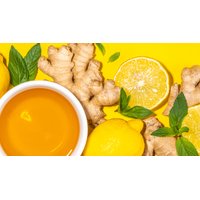* Only visible on admin mode.
Data Layer Value
Value
DataLayer - GTM_Page_Type
DataLayer - GTM_page_category

Content
Author
Date
Category
Tags

Fight Inflammation Naturally: Top Anti-Inflammatory Foods to Add to Your Diet
Fight Inflammation Naturally: Top Anti-Inflammatory Foods to Add to Your Diet
Immunity, Lifestyle, Longevity
Author
Sydney E.
October 12, 2022
Sydney E.
Inflammation is part of your immune system’s reaction to threats. It’s a healthy and normal response to acute conditions. However, chronic inflammation is not. This response causes systemic stress and is a leading cause of cardiovascular disease, diabetes, and arthritis.
The standard American diet consists of numerous foods that increase inflammation and fewer of those that reduce it. To support your immune system response, consider including these anti-inflammatory foods in your diet daily.
Anti-Inflammatory Foods: Fruits
Anti-Inflammatory Foods: Fruits
Not all fruits have anti-inflammatory characteristics. However, there are several that are powerful immune-system boosters.
Berries
Berries
Berries top the list. They contain anthocyanins, potent antioxidants that give berries their notable red, purple and blue coloration. Berries also contain flavonols and tannins. Together, these compounds produce an anti-inflammatory response in the immune system. Some of the most beneficial berries include:
- Blueberries
- Raspberries
- Strawberries
- Blackberries
Eating fresh berries provides you with the most significant benefits.
Tomatoes
Tomatoes
Including tomatoes in your anti-inflammatory foods gives you a good dose of lycopene. This potent nutrient reduces inflammation that can lead to cellular and cardiovascular disease. To increase your body’s absorption of lycopene, eat your tomatoes along with healthy fat.
Cherries
Cherries
Both sweet and tart cherries are good for your immune system. This fruit contains the inflammation-reducing compounds catechins and anthocyanins. Research shows that eating cherries also provides additional benefits such as relief from exercise-induced muscle fatigue, decreased blood pressure, reduced arthritis pain, and improved sleep quality (1).
Anti-Inflammatory Foods: Veggies
Anti-Inflammatory Foods: Veggies
Including whole veggies, nuts, and legumes in your diet is critical for overall health. Numerous vegetables offer immune system support and contain essential vitamins and minerals.
Dark, Leafy Greens
Dark, Leafy Greens
Dark, leafy greens such as spinach, kale, and Swiss chard are nutrient-dense and anti-inflammatory. These healthy vegetables contain vitamin K, a vitamin that lowers inflammation. Additionally, consuming dark, leafy greens regularly may reduce C-reactive protein levels, a protein associated with inflammation.
Cruciferous Veggies
Cruciferous Veggies
Broccoli, cauliflower, cabbage, and Brussels sprouts are all examples of cruciferous vegetables to include in an anti-inflammatory diet. These veggies are rich in antioxidants and contain sulforaphane, a potent anti-inflammatory compound.
Other Types of Anti-Inflammatory Foods
Other Types of Anti-Inflammatory Foods
There are several other sources of anti-inflammatory nutrients you can include in your diet:
- Turmeric: This spice is known for its rich orange color. Turmeric contains curcumin, a compound known for its anti-inflammatory properties (2).
- Cacao and dark chocolate: Cacao is the unprocessed form of the cacao bean, the primary ingredient in chocolate. Cacao or dark chocolate provides a rich source of flavonoids, compounds that help decrease inflammation.
- Green tea: Drinking green tea provides numerous health benefits, including lowering inflammation in the body. The tea is rich in polyphenols, compounds that help regulate cytokine production.
In addition to the above, one type of meat has anti-inflammatory properties. Fatty fish, such as salmon and mackerel, are high in omega-3 fatty acids, which help reduce inflammation.
Anti-Inflammatory Foods Supplements
Anti-Inflammatory Foods Supplements
It can take time to switch to a diet containing high anti-inflammatory foods. When you want to ensure you consume high levels of nutrients that decrease inflammation, taking a high-quality supplement can give you the boost you need. Clinal Effects’ cruelty-free, high-quality turmeric supplement provides a concentrated and potent source of this powerful food. Try a bottle today! (3)
- https://www.ncbi.nlm.nih.gov/books/NBK493173/
- https://pubmed.ncbi.nlm.nih.gov/24512603/
- https://pubmed.ncbi.nlm.nih.gov/26501271/
- https://pubmed.ncbi.nlm.nih.gov/29562604/
- https://pubmed.ncbi.nlm.nih.gov/34291072/
- https://www.ars.usda.gov/plains-area/gfnd/gfhnrc/docs/news-2013/dark-green-leafy-vegetables/
- https://www.pennmedicine.org/departments-and-centers/ophthalmology/about-us/news/department-news/diet-and-chronic-inflammation
- https://clinphytoscience.springeropen.com/articles/10.1186/s40816-015-0011-2
- https://pubmed.ncbi.nlm.nih.gov/27240397/
- https://pubmed.ncbi.nlm.nih.gov/26299975/
- https://www.clinicaleffects.com/blog/turmeric-basics
Author
Sydney E.
-
Latest Posts
-
-
The Truth About Metabolism: What You Need to Know
-
Satiety: How to Feel Full and Satisfied
-
Functional Foods for Optimal Health: A Beginner’s Guide
-
Plyometrics for Beginners to Build Strength and Speed
-
Polyphasic Sleep Schedules: Benefits, Risks, and Practical Tips
-
-
Sign up now and receive
10% Off
Your Order
Cannot be combined with any other discount
By submitting your email address, you agree to receive marketing emails from Clinical Effects. We may use information collected about you on our site to suggest other products and offers. You can unsubscribe at any time. View Terms & Privacy
Thank you! Check your email for your discount
Contacts
Contacts
967 E. Parkcenter Blvd #345
Boise, ID 83706
7 A.M. - 3 P.M. MST, Mon - Fri
(833) 332-8655
support@clinicaleffects.com
THE STATEMENTS MADE ON OUR WEBSITES HAVE NOT BEEN EVALUATED BY THE FDA (U.S. FOOD & DRUG ADMINISTRATION). OUR PRODUCTS ARE NOT INTENDED TO DIAGNOSE, CURE OR PREVENT ANY DISEASE. CLINICAL EFFECTS IS NOT AFFILIATED WITH ANY OF THE STUDIES MENTIONED ON THE WEBSITE. THE TESTIMONIALS ON THIS WEBSITE ARE INDIVIDUAL CASES AND DO NOT GUARANTEE THAT YOU WILL GET THE SAME RESULTS.
© All Rights Reserved 2021


.png)